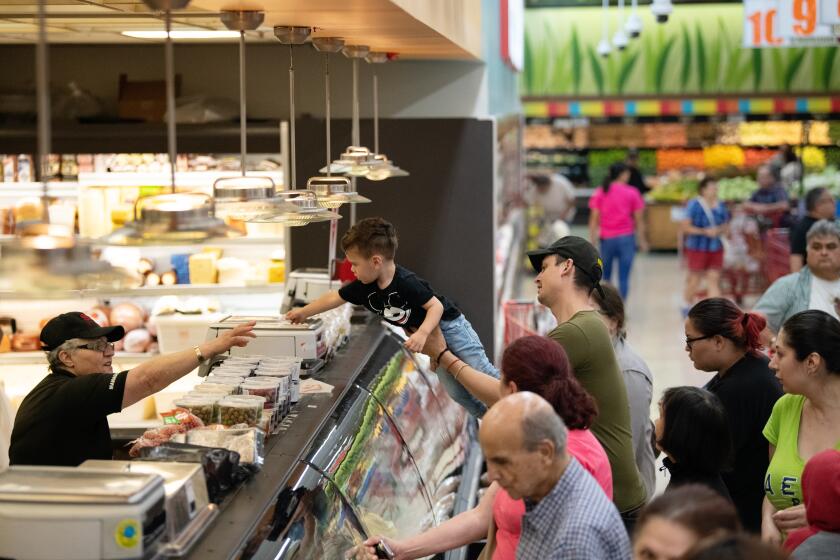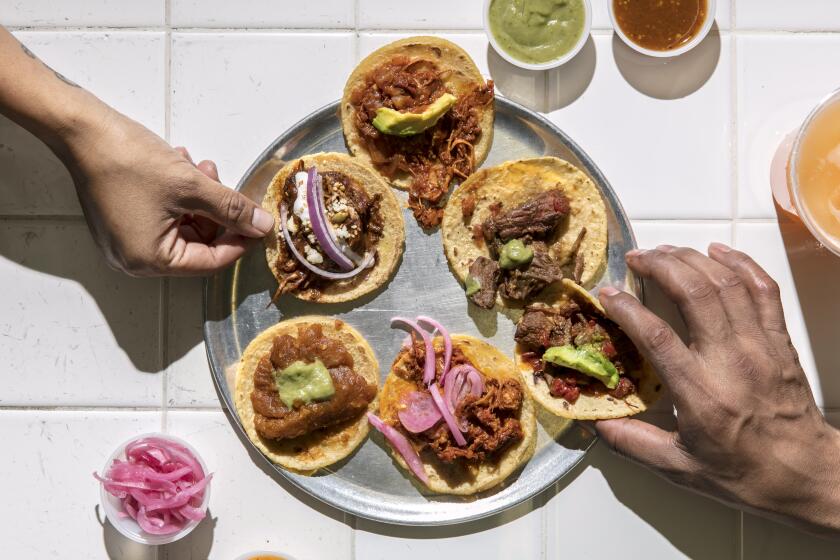How Northgate became L.A.’s best Mexican supermarket — and how it plans to stay on top
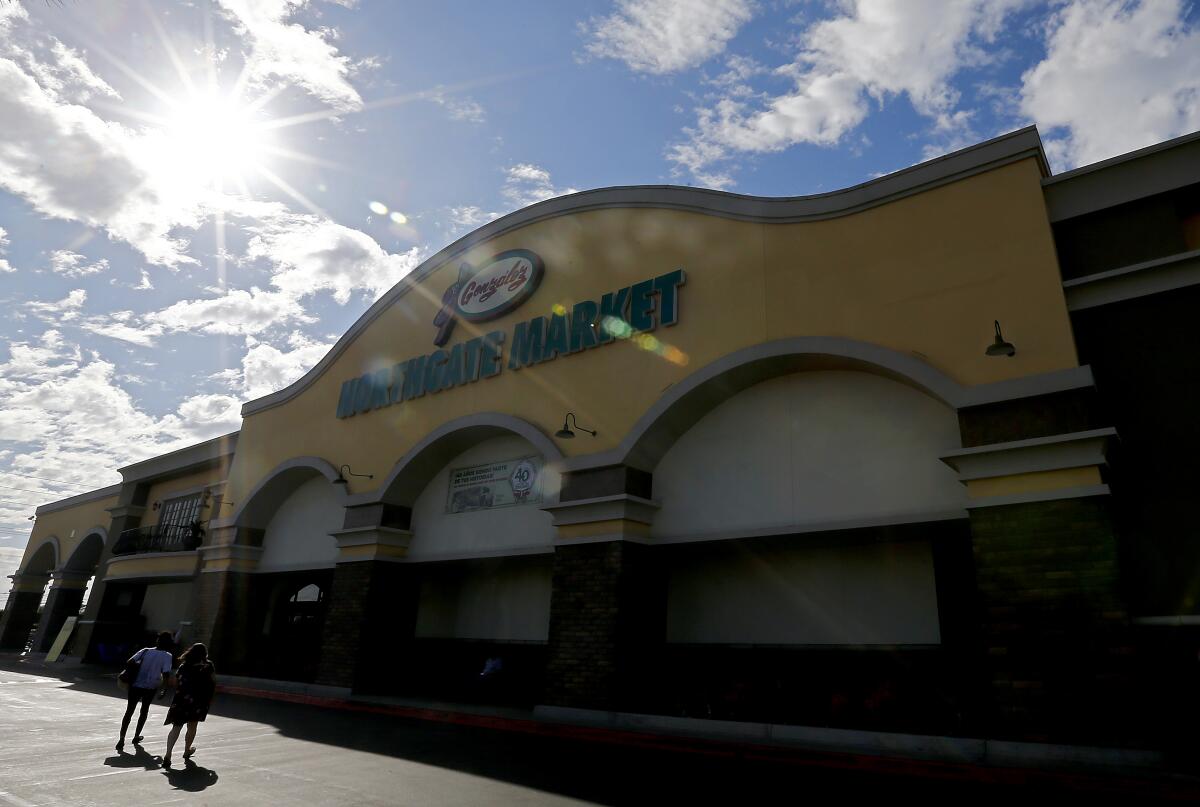
- Share via
The smell of fresh bread hits you the second you walk in. Inescapable, undeniable, completely irresistible: Warm, chubby bolillos nearly steam up the case they’re in; conchas are stacked in towers of fuschia and marigold. The bakery is often the first thing a shopper sees and smells at Northgate González Market, though a wonderland of Mexican groceries awaits within.
The next thing your senses will register is the tortilleria, pumping out neat discs of corn, some stained green with cactus leaves, some big, some small. Here, please, taste one hot off the press. There will be a self-serve tamale bar, six for $11.99, husky parcels nestled in a steamer for warmth.
For the record:
1:09 p.m. Feb. 27, 2020Northgate González Market is celebrating its 40th anniversary. This story previously said it was 30 years old.
Over there is the meat counter with grill-ready ranchera (flap meat) and diced beef para tacos, backed by simmering vats of carnitas and guisados to take home. This is all to say nothing of the produce, which includes hard-to-find imports like fresh loroco leaves and spiny chayote, and the seemingly endless selection of dried chiles, burnished and gnarled.
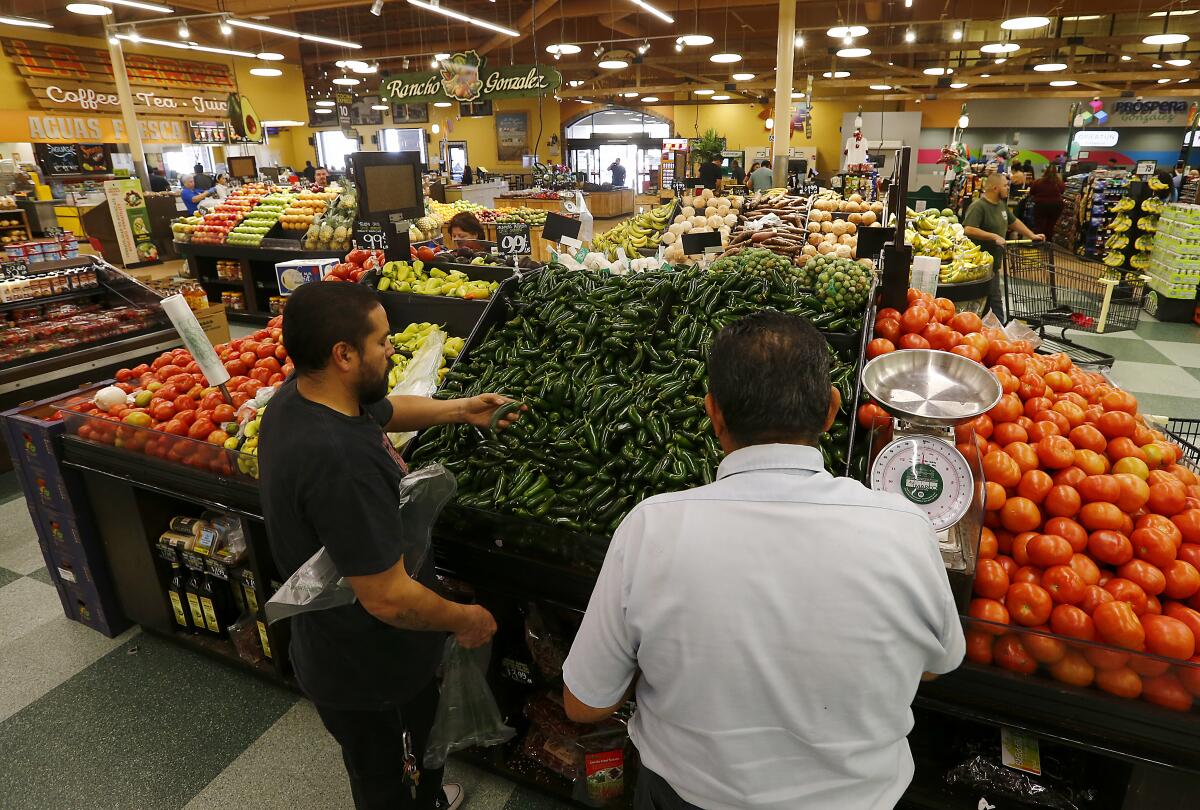
During its 40 years in business, Northgate has established itself as, arguably, the best Mexican supermarket in town. But at the start of a new decade, the family-run company finds itself catering to a large and increasingly diverse customer base across Southern California.
We asked a mix of writers, editors, chefs and staffers what supermarket they lean on most.
So if it’s been a while since you’ve Northgated, you might notice some new things around the stores, including the customizable guacamole bar, at which you can dictate the amount of cilantro and chiles to your liking. You might sample ceviches at the raw bar or grab a premade Peruvian-style sushi roll to go. You have many options when it comes to grab-and-go, actually, whether from a hot buffet, a pungent salsa bar, a freshly made burrito station or a festively decorated agua fresca stand.
This is the Northgate of 2020.
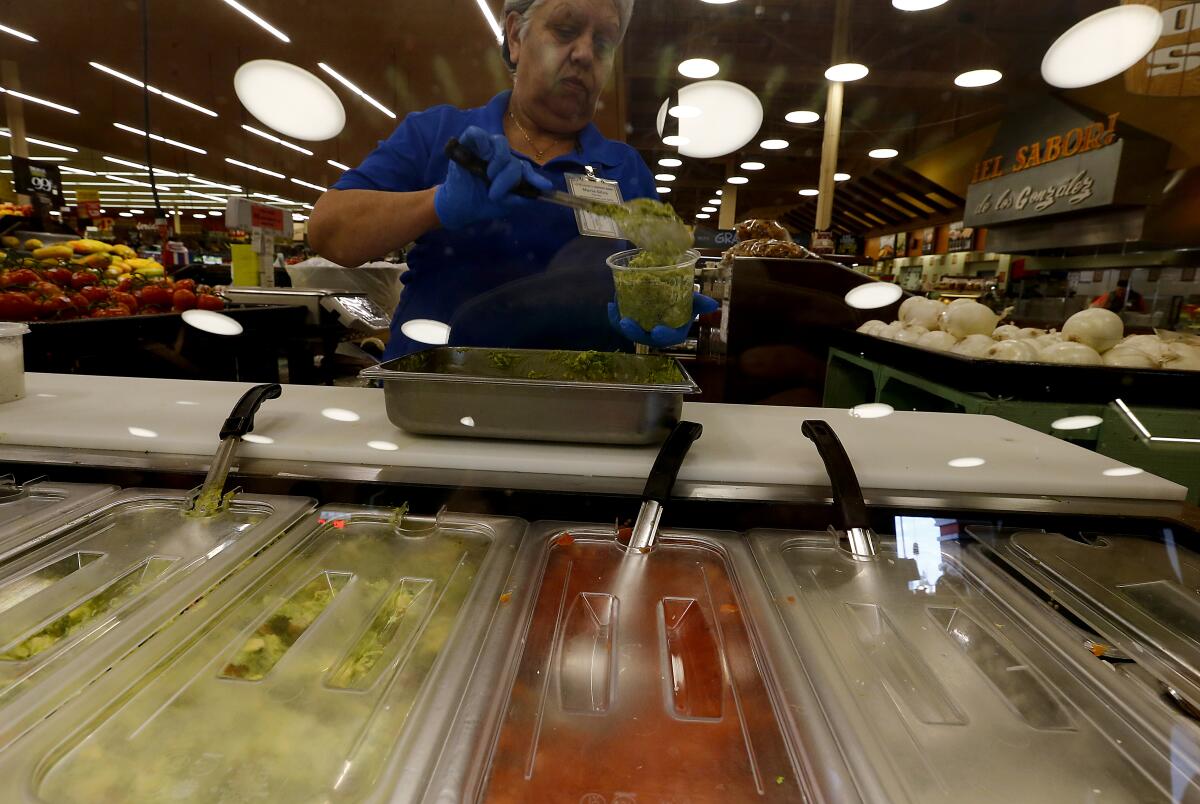
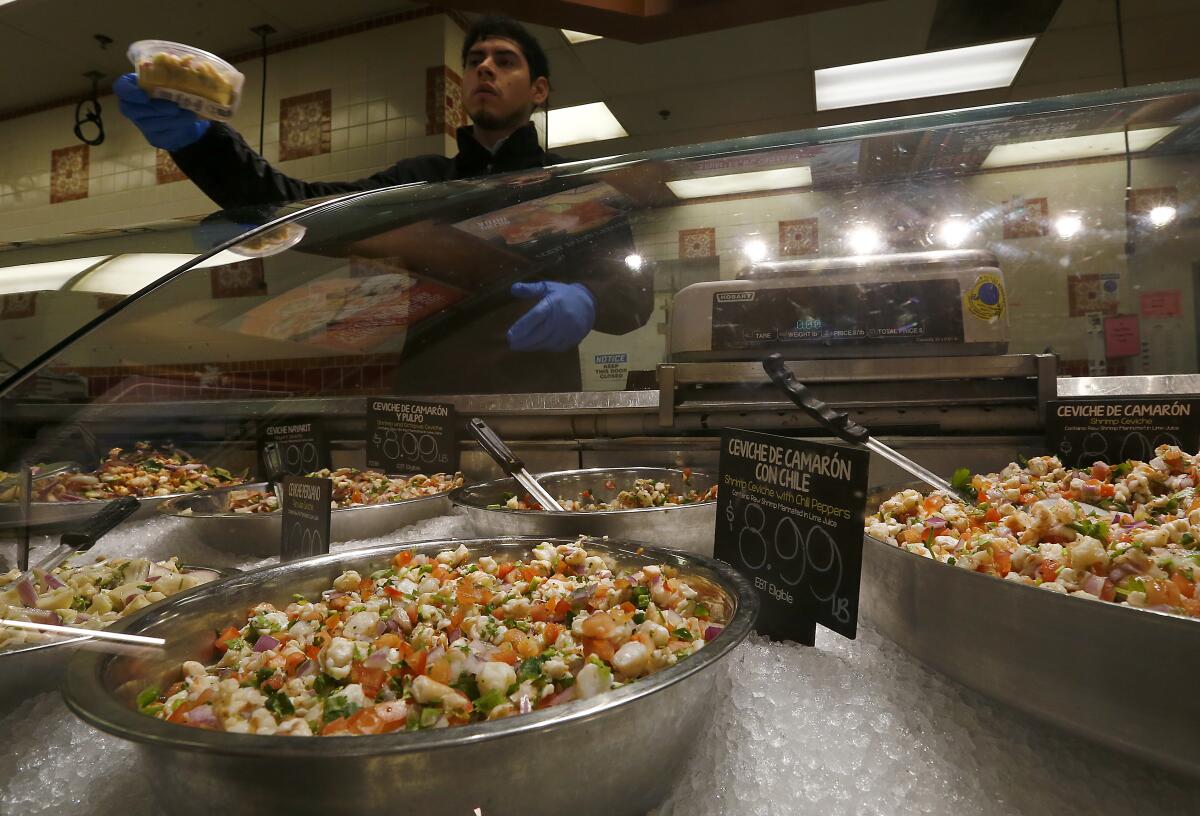
Last year, Northgate’s revenue topped $1 billion, placing it among the top three Hispanic supermarkets in the nation, said David Marcotte, senior vice president at market research agency Kantar. With 41 stores across Los Angeles, Orange County, San Diego County and the Inland Empire — and no outside investors — that’s no small feat.
Northgate’s success reflects a national upward trend: Annual sales of Hispanic food and beverages hit $17.5 billion in 2015 and are expected to increase to $21 billion by 2021, according to a report by Research and Markets.
The Persian cucumbers are always a mob scene.
Northgate execs say they’re serving younger, more upwardly mobile shoppers (more than half of the U.S. Hispanic population is younger than 29) who care about convenience as much as cultural specificity. Immigration from Mexico is declining, though Hispanics account for almost half of the United States’ population growth. Navigating these demographic changes, Northgate’s challenge is finding a way to appeal to both its base and beyond, without losing its distinctively Mexican identity.
“The reason Hispanic is growing at a good clip beyond the overall grocery trade is because, frankly, what they have is authentic, and their customer is engaged,” Marcotte said. “At Northgate and similar markets, the produce is fresh and ready to go, the meats are cut Hispanic-style by real butchers, and you can smell the scratch bakery when you come in.”
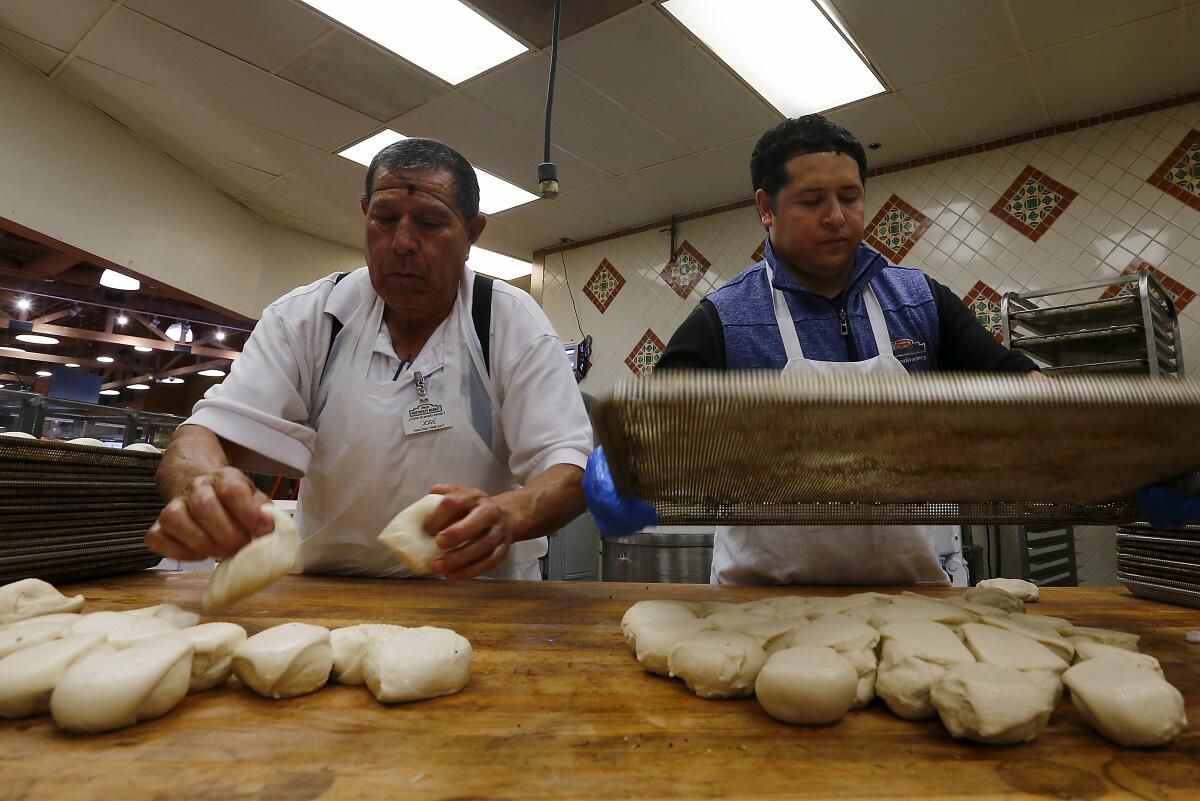
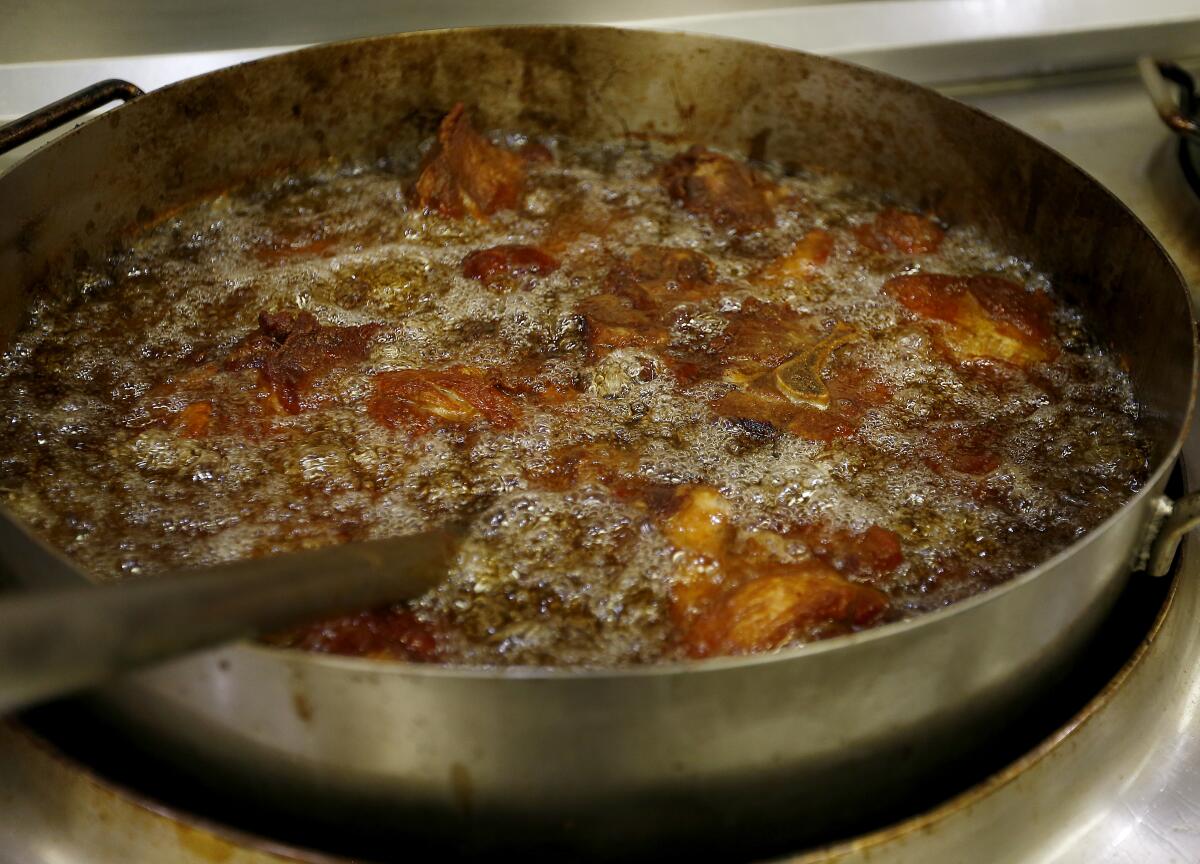
Beloved is a good word to describe people’s feelings about the store.
“It’s no comparison to other Mexican grocery stores,” said Connie Cossio, the owner of Coni’Seafood, who does her personal shopping at the Inglewood location, as well as the occasional run for restaurant supplies. “Northgate has a better selection, better quality and better customer service.”
Teddy Vazquez of Teddy’s Red Tacos set up his first truck near the chain’s Slauson location and bought tortillas and produce there before developing relationships with suppliers. Today, he still buys his staff Northgate birthday cakes.
Marissa Marrufo, who helps run Chichén Itzá in Mercado la Paloma with her husband, chef Gilberto Cetina, is a self-described Northgate “fangirl.” She goes to the Hawthorne store twice a week.
“When we bought our first house, that was one of the criteria — it had to be in the Torrance school district, and it had to be close to a Northgate,” she said.
Looking for tacos and more great Mexican food on our 101 Best Restaurants list? It’s right here.
Company executives say they must embrace change in order to grow.
“The demographic changes in California and across the country — the slowdown of immigration, the increased significance of millennial Hispanics and Latinxs, and Mexican food becoming more mainstream — all plays into our strategy,” Northgate Co-President Oscar González said. “The way we really appeal is by becoming more authentic and establishing ourselves as the known authority on what true Mexican food is. That resonates with everyone.”
By offering a wide array of regional Mexican specialties — Oaxacan string cheese, Sinaloan chile tepin, Yucatecan achiote — Northgate has the Mexican market on lock. Combine that with increased selections from other parts of Latin America (Salvadoran and Guatemalan products in particular sell well) and the Caribbean, and a push for more prepared and grab-and-go foods, and it’s a recipe for success.
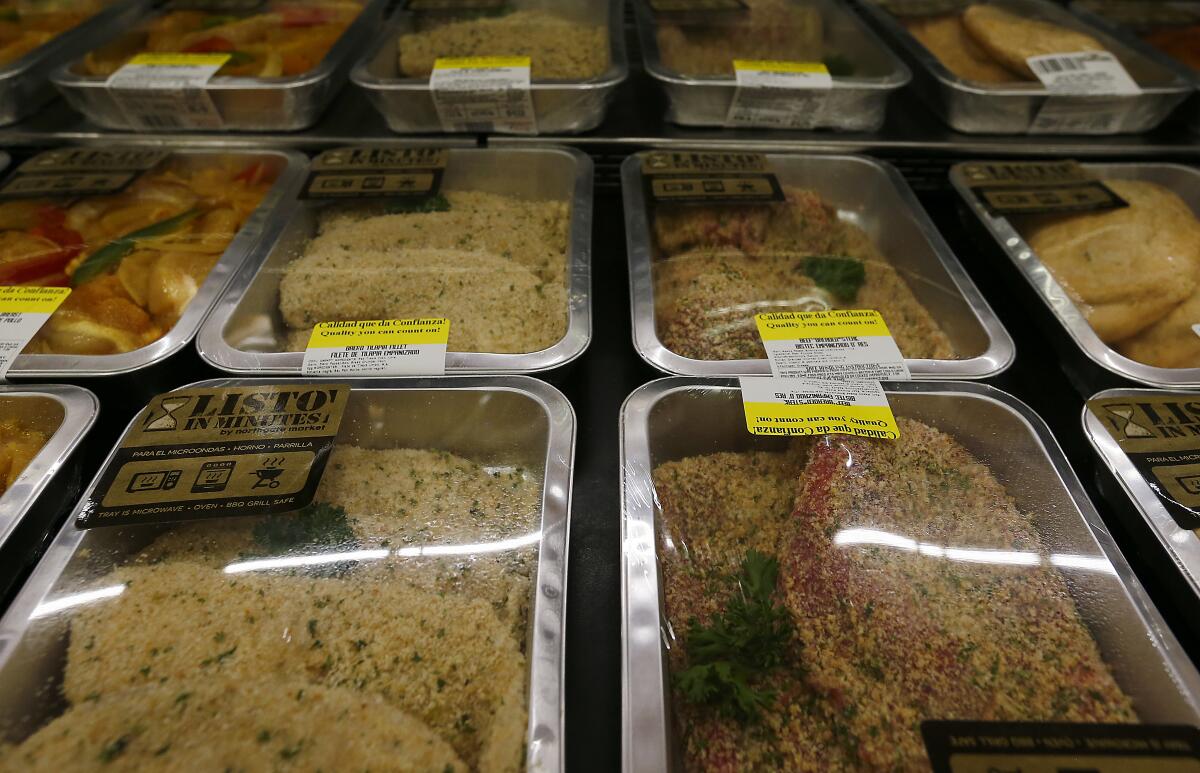
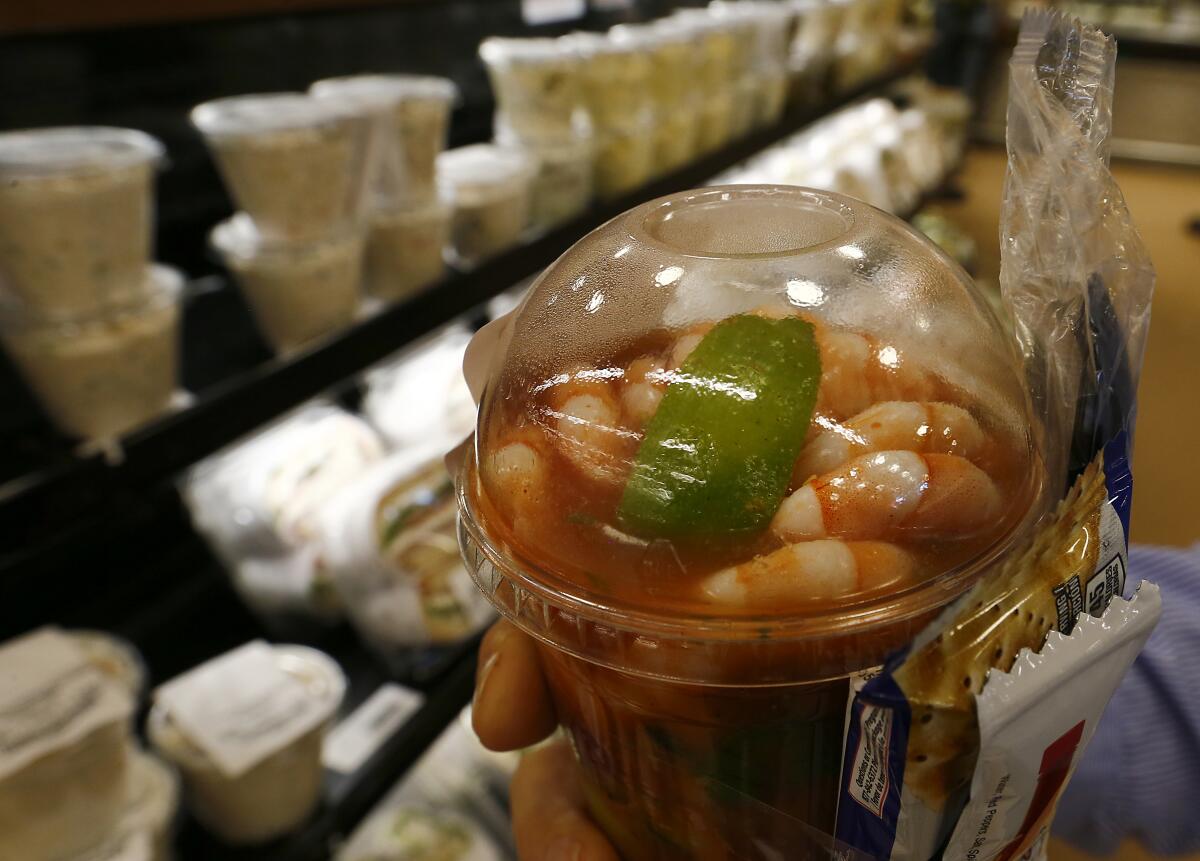
Northgate was founded by Don Miguel González, who immigrated to California in 1968 from Jelostotitlán, Jalisco, with his two oldest sons. Matriarch Teresa Reynoso de González (aka “Doña Teresa”) stayed in Mexico with their 10 other children until 1976, when they joined Don Miguel in La Mirada.
In 1980, the family purchased a small storefront in downtown Anaheim. The signage from the former liquor store already said Northgate and the name stuck, initially because the family couldn’t afford to change it and, later, because “we realized that immigrants from Latin America call the U.S. ‘north’ — the land of opportunities,” Co-President Miguel González said. “It’s fitting.”
A second store opened in Anaheim a year later, then a third in La Habra in 1986, a fourth in Pico Rivera in 1989, and so on.
“From the beginning, we focused on authentic Mexican products, which was a huge need for the community,” Miguel said. “No companies were dealing with that need for Mexicans in the U.S. People used to drive up from Tijuana with trucks and baskets full of merchandise.”
The Gonzálezes wanted to bring the sensation of shopping at a Mexican mercado — complete with music, colors, salesmanship, tastings and more — to stores, along with services like check cashing and money transfers.
Northgate’s core principles have stayed much the same since inception.
“I can always count on Northgate if I run short at the restaurant or am prepping for an event,” said Alberto Bañuelos, the owner of Burritos Las Palma in El Monte. “The quality is so high, they’re so consistent, and the product is as close as you’re going to get to what you’d find in Mexico.”
That said, his non-Mexican wife loves the store too, for its variety as much as its quality.
“It actually blends the standard American stuff with the Mexican taste I look for,” Bañuelos said. He’s all for the company broadening its reach, but he hopes it doesn’t change too much: “Northgate is already the Michael Jordan of Mexican supermarkets. They don’t need to try to become Whole Foods.”
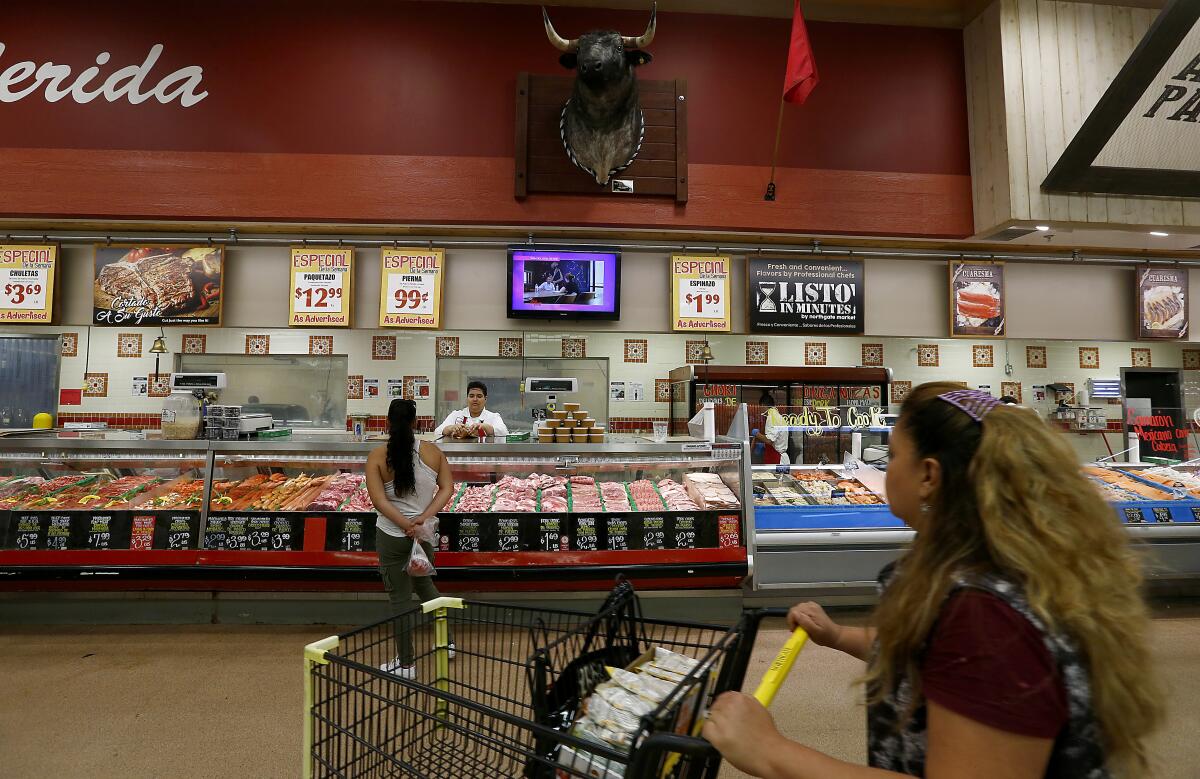
Travis Hayden, chef de partie at Rustic Canyon in Santa Monica, had never heard of Northgate until his Mexican coworkers started bringing in its produce and baked goods for the staff’s before-service family meals. Intrigued, he stopped in to the Culver City location.
“I ended up doing my regular grocery shopping there, just stocking up for home. It’s exciting for me to be in a new market — every time I go, I walk up every single aisle because there’s always something new I want to try,” he said. He likes to load up on dry and pantry goods, praising Northgate’s value on staples like canned tomatoes and dried lentils. “And the produce,” he adds, “it’s one of the few places that has fresh tomatillos 365 days a year.”
While rival supermarkets Mi Pueblo and Cardenas were acquired by private-equity firms KKR and Victory Park Capital in 2016, Northgate is still run by the 13 González siblings and their children, 36 of whom are involved in the business. Their growth plans are conservative, focused around the L.A. area and the Inland Empire, and Oscar González is hesitant to cede control to outsiders.
“I really believe it’s easier to manage a large group, in some ways, as a family,” he said. “We’ve been having lunch together every Wednesday for 35 years. We have to work on our issues, align ourselves and move forward.”
Last week, I visited the Northgate on Olympic Boulevard. The first thing I saw was a group of three women clustered around the watermelons, picking each fruit up and slapping their bellies repeatedly, like a drum. “To test for freshness,” said one of them, glancing up. “Like we do back home.”
Eat your way across L.A.
Get our weekly Tasting Notes newsletter for reviews, news and more.
You may occasionally receive promotional content from the Los Angeles Times.

